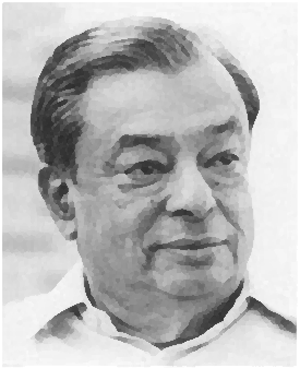Apr 14, 2025
Apr 14, 2025
 Verghese Kurien, the Milkman of India is no more. It was Kurien who engineered the White Revolution in India. Today India is the largest milk producer in the world. He set up the model of cooperative dairy development and today he is called ‘the Father of the white revolution’ in India. Kurien was a product of the liberal attitude of the leaders of Gujarat of that time. Morarji Desai, Vallabhbhai Patel and Tribhuvandas Patel. The former two playing a larger role in the national level politics and thus having an inclusive outlook and the later having absolute focus on what was best for the farmers and who could deliver this most effectively. The greatness of Tribhuvandas Patel was in his understanding of his limitations and spotting of merit in Kurien. Kurien exhibited that trait – but to a very limited extent. His immense faith in colleague HM Dalaya is something that reverberates throughout the book. However, but for Dalaya we do not find any mention of many others who worked with him. It appears that the entire dairy cooperative movement was a long marathon run single-handedly by Kurien and only towards the end he found Amrita Patel to hand over the baton.
Verghese Kurien, the Milkman of India is no more. It was Kurien who engineered the White Revolution in India. Today India is the largest milk producer in the world. He set up the model of cooperative dairy development and today he is called ‘the Father of the white revolution’ in India. Kurien was a product of the liberal attitude of the leaders of Gujarat of that time. Morarji Desai, Vallabhbhai Patel and Tribhuvandas Patel. The former two playing a larger role in the national level politics and thus having an inclusive outlook and the later having absolute focus on what was best for the farmers and who could deliver this most effectively. The greatness of Tribhuvandas Patel was in his understanding of his limitations and spotting of merit in Kurien. Kurien exhibited that trait – but to a very limited extent. His immense faith in colleague HM Dalaya is something that reverberates throughout the book. However, but for Dalaya we do not find any mention of many others who worked with him. It appears that the entire dairy cooperative movement was a long marathon run single-handedly by Kurien and only towards the end he found Amrita Patel to hand over the baton.
In his autobiographical book I Too Had A Dream there is an interesting narrative. At a meeting of dairy farmers, Morarjibhai asks for volunteers to serve as chairman of the organization. A few people volunteer but Tribhuvandas Patel is sitting quietly and Morarjibhai asks him if he wants to be the chairman for which Patel says no. Morarjibhai makes him the Chairman and Kurien says “Morarjibhai probably believed that if somebody wanted to be the chairman badly enough, then he would definitely have some vested interest.” This is the contradiction with which Kurien has lived his life. That on the one hand he argues that the resources and destiny of the farmers should be put in their hand and they should be allowed to manage their own resources, at the same time they have to be protected from vested interests. In this sense Kurien as the chairman of Gujarat Milk Federation was a balancing factor because he had no vested interest, but at the same time, he was occupying the post of governance which going by the co-operative principles espoused by him should have been rightly occupied by a farmer. In today’s India we need such a person to be in command of any institution. Kurien was an institution himself.
Kurien was born in 1921 in Kojhijhor of Kerala . He did his Masters in science with distinction. He also had a background in mechanical engineering. At the request of his friend Tribhuvan Das, he began his work as a dairy engineer in 1949 in Gujarat. At the time, private dairies, middlemen, and inefficient collection and distribution systems resulted in milk of varying quality being erratically available across the country, often at high prices to consumers but with little profit for the producers. Prime Minister Shri Lal Bahadur Shastri created the National Dairy Development Board (NDDB) in 1965 to replicate the model nationally. Operation Flood began in 1970, total annual milk procurement was only 190,000 tons, with 278,000 farmers involved in the program. By 1998, at the time of Dr Kurien’s retirement as chairman, the NDDB’s programs involved more than ten million dairy producers in 81,000 cooperatives, supplying almost five million tons of milk annually to over 1000 cities and towns throughout that country. Reaching nearly 250 million people, Operation Flood was the largest agricultural development program in the world. India has also emerged as the largest producer of milk in the world, surpassing the United States. Dr. Kurien’s greatest contribution with Operation Flood was to put the farmer in command as the owner of her or his own cooperative – a pivotal factor in the program’s success. These cooperatives created a grassroots foundation underpinning India’s democracy. Dr. Kurien has received over 15 honorary degrees from universities in the United States, Canada, the United Kingdom, and India. Magsaysay award (1963), Padma Sri (1965), Padma Bhushan (1966), World Food prize (1989) and Padma Vibhushan (1999) were the major awards that came on his way, besides more than dozen prizes, honorary doctorates and other honour.
10-Sep-2012
More by : Dr. Ratan Bhattacharjee